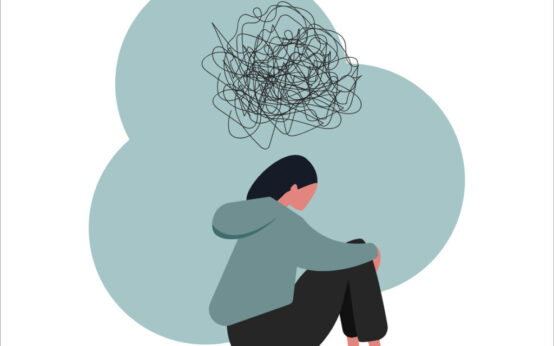A Quick Guide
Stress or emotional regulation is a skill. While some people are good at managing their emotions by using effective strategies and internal resources. Others fail due to their choice of defensive and maladaptive strategies. If we look broadly, there are two types of coping styles. Try to figure out which style you usually adopt when dealing with emotions.
Defensive coping style
Defensive coping usually uses strategies that are temporarily effective but at a high cost to your physical and mental health. These utilize your resources to block the stressor and not actively deal with it.
Due to this, the stressor and the associated negative feelings get repressed for the time being but leak out at some other time. In short, these strategies are not effective in the long run as they are more harmful than useful. Thus it is integral that we modify and turn to more adaptive coping strategies. A few examples of defensive coping strategies include the following.
1. Withdrawal / Avoidance
This strategy involves withdrawing from a stressful situation that you cannot control. Some people withdraw emotionally whereas others withdraw physically by moving away. For example, an anxious person may withdraw/move away from crowded events to avoid socializing or someone with a painful past may withdraw emotionally and avoid negative emotions. Using distraction strategies can also be a form of avoidance. Though withdrawing is helpful as it reduces the exposure to painful emotions, it doesn’t resolve the problem. Rather it perpetuates it.
2. Denial
This strategy includes minimizing the seriousness of a situation to deal with it. For example, someone who loses a parent, may not believe it and say others are playing a prank on him/her. Generally, your reaction in denial is ‘It’s no big deal‘, or ‘I don’t care’ or you attribute the situation to less serious causes. For example, a man whose wife leaves him for good tells himself ‘She will be back. She’s just in a bad mood’.
As a defense mechanism, denial helps to protect us from anxiety and other negative feelings. However, if we start relying on it indefinitely, it may have drastic consequences. For example, a person in denial of his cancer, may not get the medical treatment on time.
3. Substance use
This is another strategy that makes use of drugs or alcohol to blunt, reduce or numb the impact of negative stressful emotions. Though our awareness of the problem is temporarily suppressed, substance use fails to resolve it. Frequent reliance on it may create dependence and eventually lead to addiction disorders that impair one’s functionality and physical health.
4. Aggression
Some people react aggressively to stressful situations. They may use verbal or physical violence to channel their frustration. However, this may harm them and their relationships. Similarly, it can also physically hurt others. In short, aggression is a dangerous coping strategy that does more harm than good.
Active coping style
Compared to defensive coping, active coping style uses strategies that deal with negative emotions of stressors in a healthy manner. One modifies the internal state or the environment to buffer the impact of stress. As all stressors can be controlled or resolved completely.
Active coping involves the evaluation of internal resources to cope with stressors in a way that it has the least negative impact possible. A few examples of active coping include:
1. Problem-solving
This includes directly facing the problem and coming up with ways to solve it. For example, if you find that you are suffering from a physical illness, you immediately start your medical treatment. To cope with its psychological impact, you take help from a mental health professional. You also actively try to keep your attitude positive.
2. Humor
Some people are generally optimistic and use humor to cope with the stresses of life. They laugh at life’s problems and lighten their stressful impact. For example, when feeling stressed, you may watch a stand-up comedy show. Or Turn on your favorite comedy series etc.
3. Seeking social support
Seeking help from others is another adaptive coping strategy. It helps us feel connected, and supported and reduces the emotional load of stressors. Many people try to do everything by themselves and eventually collapse due to burnout. So, avoid doing that. Share your problems with a loved one and ask for help. Do the same for them when they are going through a difficult time.
Self-assessment of coping style
The above are only a few examples of coping styles and strategies. Try to identify your own how you approach and dealing with stressors in daily life. See if it lies in the healthy category or the unhealthy category. Follow this link for a self-assessment.
To learn more about the emotions underlying your coping strategies / behavioral patterns, check out other articles on our site.



 What You Need to Know About Trauma & its effects
What You Need to Know About Trauma & its effects  The Psychology of Stress: Exploring Causes & Coping Strategies
The Psychology of Stress: Exploring Causes & Coping Strategies  6 Effective Strategies to Stop Overthinking
6 Effective Strategies to Stop Overthinking  Trauma and Stressor-Related Disorders: Causes, Symptoms, & Coping Strategies
Trauma and Stressor-Related Disorders: Causes, Symptoms, & Coping Strategies  Overcoming Burnout: A Complete Guide Rekindling the Flame
Overcoming Burnout: A Complete Guide Rekindling the Flame  The Transformative Power of Meditation on Mental Health
The Transformative Power of Meditation on Mental Health